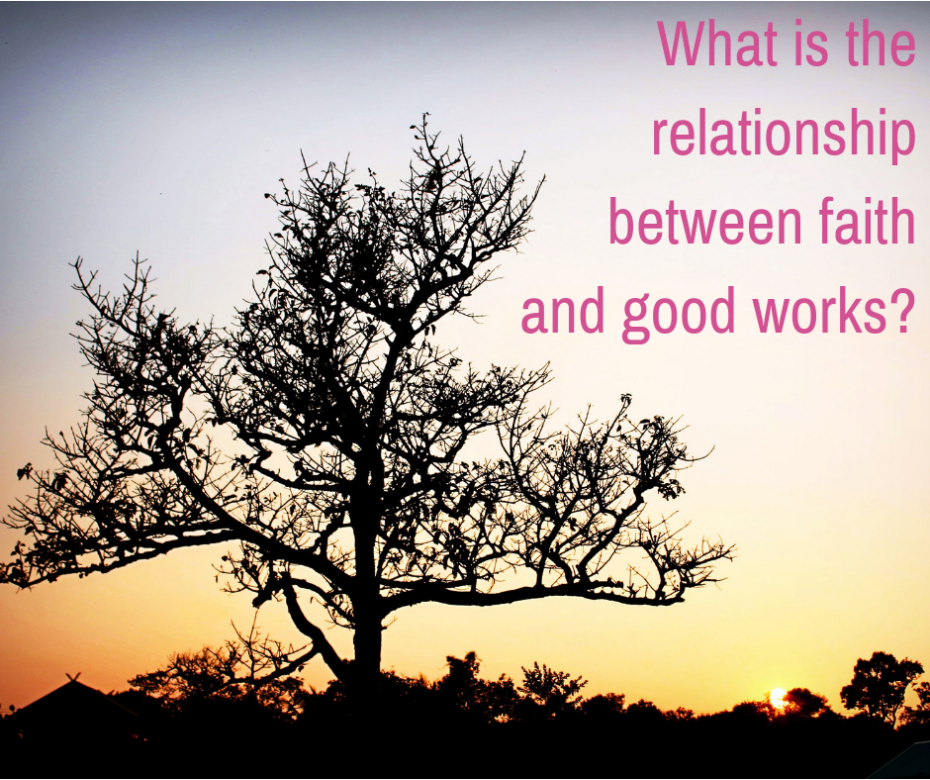The following comments and question were in response to my recent blog (see here) about the saying, “Faith alone saves, but the faith that saves is never alone.”
This is in response to the article on your website responding to Dr. Grudem’s critique of the Free Grace message. I would appreciate thoughtful answers because I am genuinely trying to understand for myself. Thanks:
Is it possible that the Free Grace movement’s interpretation of “faith alone” AND the phrase “faith alone saves, but the faith that saves is never alone” can be brought into harmony?
If I believe in Jesus and in His promise of eternal life, then I can be sure of my salvation without needing to examine my fruit/works. This can be very helpful when my current “production” of fruit may not be an accurate representation of my whole body of work anyway (for better or worse) or when I may be struggling emotionally or mentally and cannot trust myself to objectively and correctly pick out my fruit. I may end up falsely assuming that I am not saved because I have been struggling lately to walk in the Spirit.
HOWEVER, I have no problem with the idea that there will be/should be fruit over the course of my life (after conversion) because of my genuine belief (faith that saves is never alone). My harmonization looks like this: Fruit/works can be evidence of my salvation but only faith can be proof.
Personal assurance of salvation cannot be obtained by examining my fruit/works, but it CAN be found by looking to my belief/trust in Jesus and His promise of eternal life, which WILL (if genuine) produce an accompaniment of fruit/works that glorify God. It’s logical that what I believe will be expressed in my actions some way, somehow. So, fruit (evidence) can be my compass for how well I am living out my belief in Jesus and His promise at any particular moment or season of my life.
Except for one minor point, I agree with the reader. The saying would be correct if it read: Faith alone saves, but the faith that saves should not be alone.
We who believe in the free gift of everlasting life should be changed people. Of course, the new birth alone does not automatically cause our behavior to change. What causes our behavior to change is the Holy Spirit changing our thinking. As our thinking changes, our behavior is transformed. See Rom 12:1-2 and 2 Cor 3:18. Transformation is “by the renewing of your minds.” That takes exposure to the clear teaching of God’s Word over time (compare Heb 5:12-14).
That is why ministries like the Navigators and Campus Crusade for Christ do follow-up with new believers. After initial follow-up, they seek to get new believers into introductory Bible studies. And they urge them to join Bible-teaching local churches, which are God’s ordained sources for Bible instruction. Many local churches have introductory classes for new believers. But whether a new believer gets into an introductory class or not, he is able to attend church and grow by the clear teaching of God’s Word.
I’m not sure we can say that faith in Christ for everlasting life “will produce an accompaniment of fruit/works that glorify God.” In the course of human history there have been some who have died at the very moment of faith. Those people had no opportunity to produce good works.
However, I agree that if a new believer lives even a day after the new birth, he will do some good works. That is a far cry, however, from saying that his life will be characterized by good works. Or that his life will be overflowing with good works. Carnal believers, that is, “babes in Christ,” do not overflow with good works (1 Cor 3:1-3; 11:30). The Corinthian church was hardly one that was characterized by works that glorify God. They did some good works, yes. But they were not yet spiritual believers (1 Cor 2:14-16). They did not yet have “the mind of Christ” (1 Cor 2:16).
I am a cracked pot. While my mind has been renewed and I believe I am spiritually minded, I have times when bad Bob emerges. I do not hold myself up as the paradigm to follow. Jesus is our paradigm. However, much of the time I do manifest the work of the Spirit in my life. I am thankful for that. I seek to have a life that is overflowing with good works. Am I succeeding? I will find out at the Judgment Seat of Christ (1 Cor 4:1-5; 9:24-27; 2 Cor 5:9-10). But, as the reader says, I’m sure of my eternal destiny because it does not depend on a life overflowing with good works. My eternal destiny only depends on the Lord Jesus Christ being faithful to His promise of everlasting life to the believer. And I know He is and always will be faithful. He is absolutely trustworthy.


